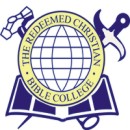2016
CfP AAR Sociology of Religion Group, San Antonio, Texas, USA, November 19-22, 2016
The AAR Sociology of Religion Group serves as a bridge between religious studies and the subdiscipline of sociology of religion. It functions as a two-way conduit not only to import sociological research into religious studies but also to export the research of religious studies into both the subdiscipline and the broader field of sociology.
Critics of sociology of religion have pointed out that the field is dominated by North Americans scholars primarily interested in Protestantism. The discipline of religious studies provides a clear antidote to these perceived limitations. Therefore, we encourage contributions from academics who study the various religious traditions around the world as well as those studying North American religious communities. In particular, we would like submissions from scholars from all academic ranks across the lines of nationality, region, race, ethnicity, gender, sexual orientation, etc.
The Sociology of Religion Group (SOR) invites both panel and paper proposals across a wide range of topics of interest to both the sociology of religion and religious studies and are particularly interested in papers, which speak to both thereby encouraging increased dialogue between them.
2016
Pentecostalism and Its Encounters with Other Religions: CfP, 9th GloPent Conferenc, University of Uppsala, Sweden, 10-11 June 2016
This 9th GloPent conference will explore these various spaces of negotiation and confrontation in the encounter between Pentecostal movements and other religious traditions, especially in Africa, Asia, and Latin America. Offering four keynotes from the vantage points of sociology, the study of religion, and theology, we invite scholars to contribute additional papers from different disciplinary perspectives and regions – enabling a broad and thorough discussion of our conference theme.
Please send your title and a 150-200 word abstract to julia.kuhlin@teol.uu.se by Friday, 15 January 2016. Selections will be confirmed latest by 15 February. For questions concerning the conference, please contact the conference organizer, Julia Kuhlin, at julia.kuhlin@teol.uu.se using “GloPent” in the subject line.
2016
Call for Papers – Globalisation of African Pentecostalism: The Changing face of World Christianity
THE REDEEMED CHRISTIAN BIBLE COLLEGE (RCBC) IN CONJUNCTION WITH THE RELIGIOUS STUDIES DEPARTMENT, UNIVERSITY OF IBADAN ORGANISES
AN
International Conference on African Pentecostalism
Theme:
Globalisation of African Pentecostalism: The Changing face of World Christianity
Venue:
Redeemed Christian Bible College, KM 46 Lagos Ibadan Expressway, Redemption Camp, Mowe, Ogun State, Nigeria.
Conference dates:
Arrival: 19th of July 2016 (from 2pm). Programme commences with the welcome address by 5pm. Conference days: 20th & 21st of July 2016. Departure: 23rd of July 2016.
For more information, see: Conference Information
CALL FOR PAPERS
The twenty-first century has heralded a new dawn in the political map of Christianity with the proliferation of Pentecostalism across the globe. The shift in the centre of gravity of Christianity from the Global North to the Global South is predicated on the dynamic growth of Pentecostalism in Asia, Africa and Latin America. Consequentially, Pentecostalism has been described as the fastest growing Christian tradition in the world. The portable practices and transposable messages of the movement contributes to its appeal to its adherents across various cultural frontiers which often times resonates within the socio-cultural contexts where it is situated.
In the light of the forces of globalisation, migration and technological advancements, African Pentecostalism is no longer geographically delineated. The moral economy of corruption of African leaders, poverty, socio-economic and forced migration have paved the way for many African Pentecostal adherents to travel with their religious idiosyncrasies to various parts of the world. The declining fortunes of Christianity in the West and North America coupled with the fact that religion is consigned to the private space. This provides the missional motivation for the reconversion of former Christian heartlands to the Christian faith by African Pentecostal denominations. In the light of the associated challenges of migration and acculturation in a new cultural frontier, African Pentecostalism provides various opportunities for recreation of Africaness in Diaspora as well as identity negotiation in the host communities.
Attention has been drawn to the social, economic, political dimensions of African Pentecostalism generally. However, the urbanisation of African Pentecostalism across the globe necessitates critical engagement with respect to the changes that has taken place with the redrawing of the Political map of World Christianity. Therefore, the Redeemed Christian Bible College in collaboration with the Religious Studies Department of the University of Ibadan, have jointly organised the 2016 International Conference titled “ Globalisation of African Pentecostalism: The Changing face of World Christianity.”
2016
Call for Papers: ACLARS conference in Addis Ababa
The organizing committee of the African Consortium of Law and Relgion Studies (ACLARS) is pleased to announce the fourth conference on Law and Religion in Africa which will be held in Addis Ababa, Ethiopia, hosted by the University of Addis Ababa and held at the African Union from Sunday, May 22, 2016 to Tuesday, May 24, 2016.
NOTE: Professor Rosalind Hackett has informed us that papers do not need to be law and religion as such, but research on religious groups or practices that has legal or rights implications.
For more information, see: http://www.iclrs.org/content/blurb/files/ACLARS%20Call%20for%20papers%202016.pdf
2016
CfP: Religious Pluralism, Heritage, and Social Development in Africa, 4th ACLARS Conference, at the African Union, Addis Abeba, Ethiopia, 22-24 May 2016
The African Consortium of Law and Religion Studies (ACLARS) invites scholars interested in the study of Law and Religion in Africa to submit electronically to diane@aloc.co.za paper proposalson of no more than 250 words on the topic of religious pluralism in Africa, particularly in relation to contemporary questions of heritage and social development. “Heritage” is to be understood broadly as including religious, cultural, legal, and historical traditions, and the way these shape religious identities and societies in Africa today by 1 February 2016. Travel support may be available for those whose papers are selected. Persons with matching funds from their institutions will receive preference in being invited to the conference.

